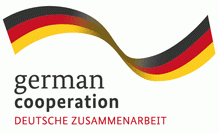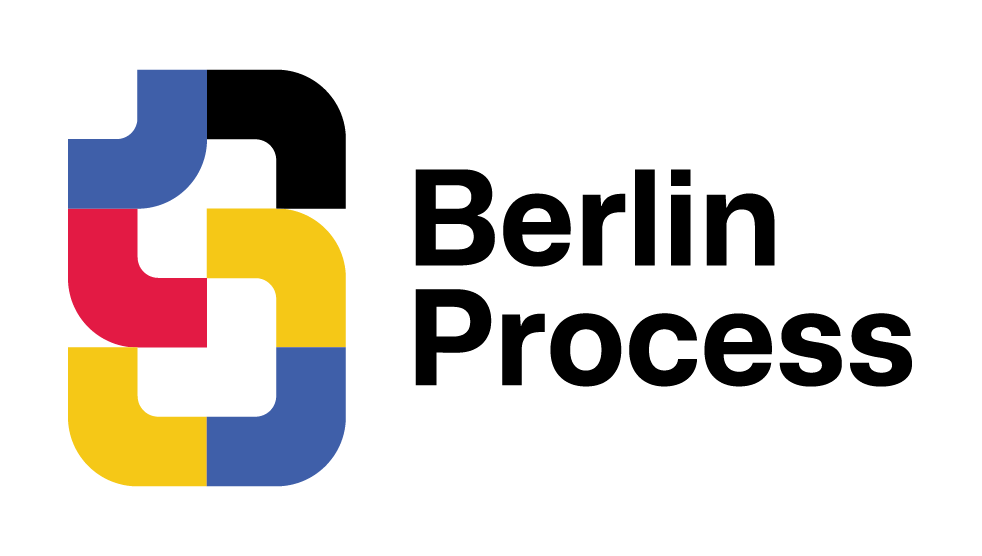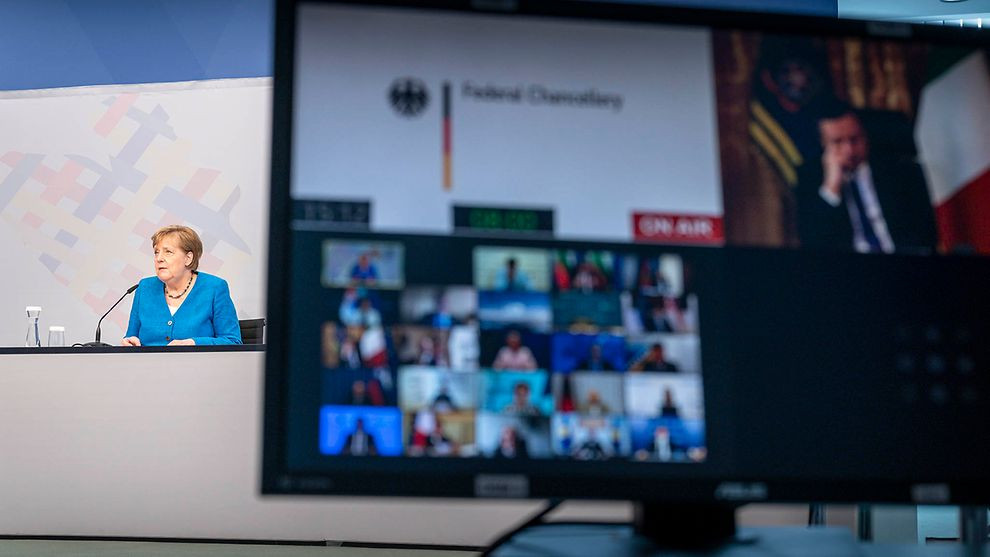On July 5, 2021, German Chancellor Angela Merkel hosted the 8th Berlin Process Summit with all participants of the Berlin Process. The participants underlined the EU perspective of the Western Balkans. In doing so, the heads of government of the six Western Balkan countries assured their continued commitment to successful regional cooperation as well as the implementation of a Common Regional Market (CRM).
This year, the Aspen Institute Germany, in cooperation with the Southeast Europe Association and with support of the German Federal Foreign Office, will organize what has always been an integral part of the Berlin Process: the Civil Society & Think Tank Forum. As tradition would have it, the forum will consist of two conferences. On June 01-02, 2021 the “Civil Society & Think Tank Forum I: Road to Berlin” will convene experts, think-tankers, and civil society representatives from the Western Balkan countries to jointly debate a wide range of challenges in the region, exchange best practices, and develop concrete policy recommendations. These will be put in the spotlight and discussed with government representatives throughout the second conference, the “Civil Society & Think Tank Forum II: Berlin 2021”, which will coincide with the Berlin Process Summit in early July. This year, the topics that lie at the heart of both conferences range from reconciliation, the acceptance and social inclusion of minorities, the role of civil society in strengthening democracy, to disinformation and media independence, the Green Agenda, integrity compliance in infrastructure projects, the digitalization of public services, the connectivity agenda as well as regional economic cooperation and the role of the EU in the Western Balkans. Due to the pandemic, the Civil Society & Think Tank Forum will have to take place in an online format.
This year’s Berlin Process ministerial meetings are to be launched by the meeting of foreign ministers on 8 June. Federal Foreign Minister Heiko Maas is to host the digital meeting which is a key component of the Berlin Process.
The focus here, too, is on supporting the development of closer ties between the countries of the Western Balkans and the EU, the countries’ EU accession and enhanced regional cooperation. It looks not just at the issues of connectivity, business and youth but also at the EU perspective of the countries of the Western Balkans, at reconciliation and intersocietal dialogue, civil society as well as unresolved bilateral issues.
This year, the meeting which is being held prior to the Summit will connect the first part of the Civil Society Forum of the Berlin Process on 1 and 2 June with the other ministerial meetings – the meetings of health ministers, interior ministers and economic ministers, the youth forum – and with the Summit itself.
Federal Minister Heiko Maas will give the opening address. Participants from the EU, the Regional Cooperation Council (RCC), the Regional Youth Cooperation Office (RYCO) and the Civil Society Forum will discuss overarching topics of the Berlin Process. This will be followed by the plenary with the foreign ministers of the six countries of the Western Balkans and the participating EU and non-EU countries.
You can watch the press conference here.
For more information follow this link: Federal Foreign Office
On 17 June 2021, the next high-level meeting of participants in the Berlin Process will take place at ministerial level. Due to the pandemic, Federal Minister of Health Jens Spahn will host this year’s meeting as a virtual conference.
Invited are the health ministers of the Western Balkan states Albania, Bosnia and Herzegovina, Kosovo, Montenegro, North Macedonia and Serbia, the EU Member States participating in the Berlin Process, the European Commissioner for Health and Food Safety, the European Centre for Disease Prevention and Control and the Robert Koch Institute as well as the WHO Regional Office for Europe.
Ensuring and enhancing good communication and close exchange between the EU states and the Western Balkans is a common goal of the high-level participants. The meeting will focus on the highly relevant topic of framework conditions for travel in times of the pandemic.
The Second Ministerial Meeting on Roma Integration in the Western Balkans region is to be held in Sarajevo, Bosnia and Herzegovina
The Ministry of Human Rights and Refugees of Bosnia and Herzegovina in cooperation with the Regional Cooperation Council Roma Integration project will host the second follow up ministerial meeting on Roma integration on 28 June 2021, in Sarajevo.
During the ministerial meeting, the discussions will focus on the implementation of the Conclusions of the Ministerial Meeting on Roma Integration in Tirana, which was held in October last year, and the overall progress on implementation of the targets specified in the Declaration of Western Balkans Partners on Roma Integration within the EU Enlargement Process (Poznan Declaration) in the first two years since its adoption.
The meeting will bring together a number of high officials, representatives of the European Union, ministers responsible for Roma integration from the Western Balkans region, representatives of the Regional Cooperation Council, officials from the Western Balkans Prime Minister's Offices, national Roma contact points and civil society representatives to discuss primarily the topics of housing, civil registration, as well as the data collection and monitoring.
Particular focus will be given to the topics of Green Agenda and Digital Agenda for the Western Balkans, and how to ensure that Roma citizens also benefit from measures and actions planned within these agendas.
The conclusions of the Second Ministerial meeting will be integrated into the chair’s conclusions of the upcoming “Berlin Process” Summit organized by the Federal Republic of Germany on 05 July 2021.
The Federal Ministry of the Interior will hold a VTC meeting of Ministers of Interior of the Berlin Process, EU and Western Balkan Partners on 29 June. Since 2018, during the UK Presidency, there has been an annual meeting of Interior Ministers in the run-up to the Berlin Process Summit. The topics “close cooperation in the fight against organised crime” and “assistance in migration management” are expected to play a prominent role in 2021.
Following the slogan that the Better Region Starts with Youth – the Western Balkans Youth Forum as side event of Berlin Summit will bring together 80 young leaders from the region. In interactive way they will discuss key challenges and topics such as Reconciliation & Peacebuilding, Volunteering, New Skills for Future, Sustainable Development, shifting “Brain Drain” to “Brain Gain” and how to increase Youth Participation. In the end of the Forum young leaders will develop Regional Youth Agenda (RYA), which will be presented to WB Summit of Leaders. Youth Forum is co-organized by Regional Youth Cooperation Office (RYCO) and German-French Youth Office (OFAJ) in cooperation with other regional initiatives and networks.
On 30 June 2021, the Federal Ministry for Economic Affairs and Energy invites to an economic conference with the countries of the Western Balkans and the partner countries of the Berlin Process. Also this year we accompanied the meeting of the Economics Ministers through an economic forum. In it, we would like to show concrete contributions from the economy in order to make the regional economic area more competitive, but also to provide impetus for strategic areas of cooperation.
Due to the current pandemic situation, the event will be held exclusively in digital format.
Lessons Learned from COVID-19: the Way Forward
The 6th Berlin Process Joint Science Conference is organised jointly by the Polish Academy of Sciences and the Leopoldina under the 2021 German Presidency of the Berlin Process. It brings together around 60 high-level representatives of national academies of sciences and arts, rectors’ conferences and leading universities, and research organisations and distinguished ad personam scientists from the 16 Berlin Process countries. Participation is possible upon invitation only.
The conference will prepare formal recommendations to the virtual meeting of the Heads of State and Government at the Berlin Western Balkans Summit on 5 July 2021, covering three major topics. In addition, it will discuss current affairs of education, research & innovation policy.
Pandemic management
In an unprecedented crisis threatening lives and affecting health, society and economy, the ongoing pandemic has claimed many efforts. Science-based knowledge continues to play an essential role in pandemic management, from advice in crisis situation, to pandemic containment and vaccination-based community immunisation. Many countries of the world have experienced several pandemic waves, with new variants delaying the end of the pandemic. Therefore, it is important to draw lessons learned from developments so far in order to avoid a resurgence of SARS-CoV-2-infections. The discussion will also focus on the specific pandemic situation in South East Europe.
Crisis resilience
A general lesson learned from COVID-19 for the entire European continent is the urgency to reinforce resilience to risks and threats posed by public health crises, as new future pandemics or regional epidemics are probable. This is why communities and states need to improve their capacity to withstand, cope with, adapt to and recover from affliction of any type by developing systemic resilience. The conference will look into pandemic preparedness, One Health, cross-border co-ordination as well as pillars of systemic resilience and short-term adversity reactivity.
Post-pandemic priorities
COVID-19 has both induced stresses and triggered transformations in different areas. Next to stresses such as overstrained medical care, disrupted social and economic systems, deteriorating mental health and child well-being, the perception of a “need for change” in the so-called recovery process has been growing. The conference will look into priorities for the post-pandemic time, including transformations such as climate neutrality and digitalisation of state and society. The focus will lay on South East Europe, also in the context of EU-enlargement and regional cooperation.
CONTACT
Lucian Brujan
Speaker of the Berlin Process Joint Science Conference
German National Academy of Sciences Leopoldina
Tel.: +49 345 472 39-836
E-mail: lucian.brujan@leopoldina.org
Further information about Leopoldina here
PARTNERS
German Presidency of the Berlin Process 2021
The Western Balkans Investment Framework (WBIF) is a donor coordination platform that pools funds from various sources, including the European Commission. The WBIF provides financing and technical assistance to strategic investments in the energy, environment, social, transport, and digital infrastructure sectors. It also supports private sector development initiatives. It is a joint initiative of the EU, financial institutions, bilateral donors, and the governments of the Western Balkans, and a key vehicle for providing support in priority areas of the Berlin Process.
Ahead of the Berlin Summit, the WBIF has produced a number of new animations, video graphics, and reports. These products highlight results and achievements during the Berlin Process, as well as look ahead to future support under the EU’s Economic and Investment Plan.
The Western Balkans Investment Framework annual report shows key results and latest project progress – Annual Report 2020
Also have a look at the video below, which is presenting results and key achievements: WBIF Decades of Engagement July 2021
Beneficiary testimonials “Changing lives, today and tomorrow”
More beneficiary testimonials “Changing lives, today and tomorrow”
In addition, a number of publications by the European Commission’s Directorate General for Neighbourhood and Enlargement Negotiations, linking to key topics under discussion during the Summit, are also listed below.
The EU Economic and Investment Plan for the Western Balkans identifies ten investment flagships. It aims to spur long-term recovery, accelerate the green and digital transition, and foster regional cooperation and convergence with the EU.
Economic and Investment Plan for the Western Balkans - brochure
Economic and Investment Plan for the Western Balkans - factsheet
EU Connectivity Agenda for the Western Balkans
This brochure provides a close-up on the EU connectivity agenda – key results and future investments – for the Western Balkans.
EU Connectivity Agenda for the Western Balkans - brochure
Green Agenda
The EU Green Agenda for the Western Balkans is a new growth strategy for the region, leaping from a traditional economic model to a sustainable economy, in line with the European Green Deal.
COVID-19 support
This factsheet provides an overview in brief of EU support to the Western Balkans in tackling COVID-19.
Picture: German government/Bergmann


